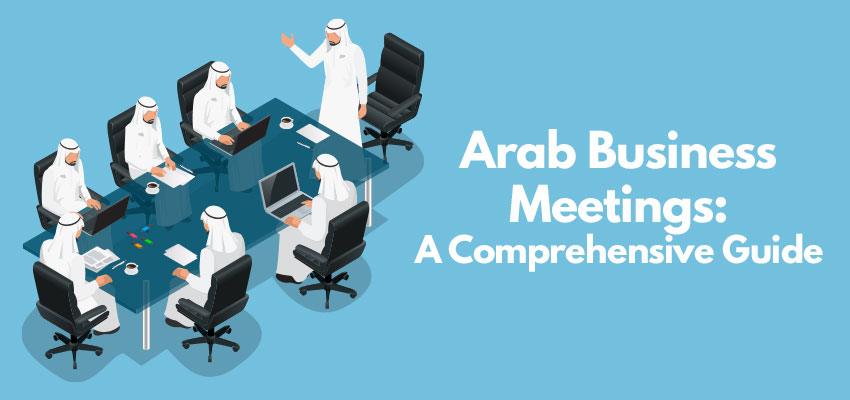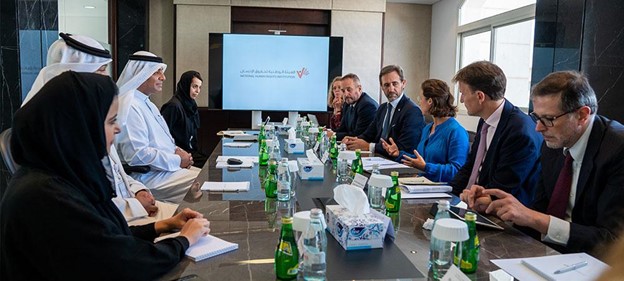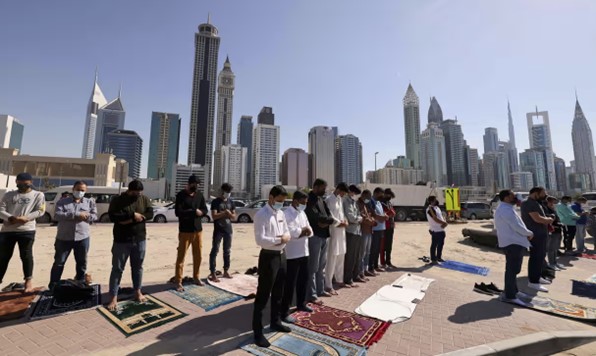
The Middle East is currently a focus for many Western companies looking to expand their reach and take advantage of this region’s fruitful opportunities. Conducting business in the Middle East and the Arab World means forging international partnerships and bridging cultural gaps: a solid foundation of cross-cultural understanding and respect should be established to ensure success. IstiZada is here to help – our guide on Arab business meetings will give you a comprehensive overview of what you need to know about making the most of Middle East business meetings.
Before the meeting: prep
No matter the nature of your business, there are several important things to keep in mind when going into a business meeting in the Middle East. Firstly, consider the language of the meeting. Will it be conducted in English, or does a translator need to be arranged for communication to and from Arabic? Don’t let a language barrier hinder this opportunity!
Meeting Etiquette
Cultural norms and practices vary greatly across the Middle East, but there are many shared values across all Arab countries that are rooted in the Islamic tradition, granted that most Middle Eastern countries are Muslim-majority. The next section will give an overview of some important, culturally respectful guidelines to follow for business meetings in Arab countries.
Dress
When attending a business meeting in an Arab country, dress formally and modestly. Women may be required or expected to cover more parts of their body than men: for example, it is not culturally appropriate for women to wear a skirt or shorter-length dress in a business setting. For either gender, dark-colored suits or a formal top and pants is a smart choice, and you are certainly not expected to wear the country’s traditional clothing. Remember to double-check local laws in the country you are traveling to, as there may be specific rules regarding dress in general.

Body language
Appropriate body language is key to making a good impression in a business meeting, especially if there is a language barrier that makes spoken communication less fluid. As with clothing, it is best to air on the side of modesty, especially across genders. A formal handshake is always an acceptable greeting. Within the meeting, concepts of personal space may be less rigid than they are in the West. However, there is typically an enforced and emphasized distance maintained between members of the opposite sex, which is a cultural norm that should be respected by visitors.

Greetings
Sharing a greeting in Arabic at the beginning of the meeting is a great way to build mutual respect. Many Arabic greetings are religious in nature, and when used by foreigners, they convey a sense of appreciation for local cultural and religious values. Appropriate and common greetings include As-salamu alaykum meaning literally peace be upon you, the response to which is wa alaykum salam. Another important greeting is sabah al-khair, meaning good morning, and masa al-khair, meaning good afternoon or good evening. You will certainly not be expected to know any of these phrases for a business meeting in the Arab world, however, if you do remember, it will be met with appreciation by your hosts.
Meeting expectations
One of the main cultural differences to be aware of when attending a business meeting in the Arab world is that the concept of time is often more circular than it is in Western cultures, where we tend to have a more fixed, linear idea of time. This means that Arab business meetings may feel longer with filler conversation, whereas Western business meetings are expected to be concise and to the point as to maximize efficacy and save time. It is important to remember that there is a great emphasis placed on building personal relationships in the Arab world, and therefore initial meetings may be more about getting to know each other rather than the nitty-gritty business details, which will take more time to openly discuss.
Stakeholders and key players
The family unit is central to Arab culture, and this often carries over to the workplace as well: family-run businesses are commonplace, and nepotism is generally more widespread and considered more acceptable than it is in Western countries. These dynamics can present a challenge, making it difficult to know who exactly has the power to make decisions in the company. Therefore, before you enter a business meeting, you should make sure you know who the decision maker is, as roles may not be as clearly defined as they are in Western-based companies.
Meeting location and logistics
Location
In the Middle East, it is common for business to take place in and outside of the physical workspace. Therefore, don’t be surprised if your prospective business partners invite you out to a meal or coffee first rather than an office meeting. Considering this, you also should take care not to rush into talking business, as your host may view this as impolite and inconsiderate of cultural values of hospitality. As a general guideline, it is best to go along with your prospective partner’s schedule and remember that it may take longer to seal the deal than you expect.
Timing
Try to fix a time and date for your meeting in advance, but note that in the Arab world, last-minute changes to the timing of meetings are usual and more culturally acceptable than they are in the West, where schedules tend to be fixed and less flexible. Don’t be surprised if the meeting starts late and end late, however, you should make an effort to be punctual as it will signal that you are serious and dedicated to the business at hand.
If you are asked to suggest a time, consider working around prayer times which are often strictly observed in all Muslim countries of the Middle East. See the below chart for daily prayer times, noting that the timing changes slightly each day as well as by country.
| Prayer | Time (Saudi Arabia) |
| Fajr | 3:52 AM |
| Dhuhr | 12:00 PM |
| Asr | 3:25 PM |
| Maghrib | 6:40 PM |
| Isha’a | 8:10 PM |
You should also keep in mind that for many Arab countries, the weekend is Friday and Saturday rather than Saturday and Sunday (with the exception of Morocco, Tunisia, and Lebanon), because Friday is the sacred day of worship in Islam. Before scheduling your meeting, you should check to make sure it does not fall on or around a significant Muslim or national holiday, which often result in vacation weeks or long weekends and would not be a productive time to conduct business.

Conclusion
It is a great time to get into business with Middle Eastern-based companies. Cultural differences between the Arab world and the West should not be seen as hindrances to potential partnerships but rather as ways to grow as a company and reach new and exciting markets. By keeping these cultural differences in mind, you will be prepared for your business meeting and sure to impress your prospective partners.
Written By: Luisa Bocconcelli
SOURCES:
https://www.linkedin.com/pulse/12-etiquette-tips-doing-business-middle-east-pia-maynard/
https://austinkleon.com/2020/01/06/circular-time-vs-linear-time/
https://www.tiemart.com/blogs/tiepedia/business-etiquette-in-the-middle-east
https://www.muslimmuna.com/prayer-times/city/riyadh
https://www.attijaritrade.ma/en/choose-your-markets/country-profiles/saudi-arabia/business-practices
Jordan Boshers
Jordan Boshers is the Chief Digital Strategist at IstiZada, a digital agency that helps companies market to Arabs. He has 12+ years of experience running successful digital marketing campaigns in the Arab world. His insights into Arabic SEO helped him grow previously unknown websites to dominate Arabic niches on Google including growing one site from 0 to more than 2.5 million users monthly. Jordan has consulted for hundreds of companies including helping corporations like Amazon, Berlitz, and Exxon Mobil with their Arabic digital marketing. Learn more here or on LinkedIn.
View all posts by Jordan Boshers